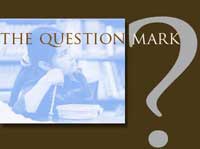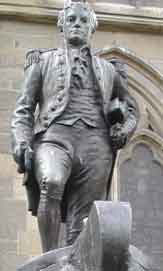Not Essential
There is a difference between essential questions and brilliant questions. While essential questions touch upon the most important issues of life, they are rarely brilliant.
Essential questions touch our hearts and souls. They are central to our lives. They help to define what it means to be human.
Most important thought during our lives will center on such essential questions.
- What does it mean to be a good friend?
- What kind of friend shall I be?
- Who will I include in my circle of friends?
- How shall I treat my friends?
- How do I cope with the loss of a friend?
- What can I learn about friends and friendships from the novels we read in school?
- How can I be a better friend?
In contrast with essential questions, brilliant questions are important for their power to unlock mysteries and open doors.
- What will it take to win her heart?
- How can I win back this friend?
- Where did I go wrong?
Brilliant questions may also be essential, but they almost always deal with strategy and change of some sort.
A Vivid Example
In studying important figures from history we might ask the essential question, "What kind of person was Joan of Arc or Matthew Flinders?" This question should inspire a great deal of digging into the actions of each figure that speak to character. The student must gather evidence. It is a bit like a harvest.
But all this gathering may not bring us to the heart of the matter.
Here is where the brilliant question comes into play.
In understanding both Joan and Matthew, a student might ask where they went wrong, since each of them encountered serious frustrations, what with Joan being burned at the stake and Matthew wasting away some six years in captivity in Mauritius.
- Where did Joan go wrong? What could she have done differently?
- Where Matthew go wrong? What could he have done differently?
The brilliant question helps us to cast new light on a subject or challenge. Too often research is a humdrum matter of scooping and gathering, as if heaps and mountains of information will contribute mightily to insight. The brilliant question cuts past the obvious and brings us to startling, often stunning insights.
For some reason the thesaurus and the dictionary are little help when it comes to the word "brilliant" when used in this way.
Brilliant Questions on the Web
The paragraphs above were written prior to doing any review of related material on the Internet. To my surprise, when I did a Google search for "brilliant question," one of the first sites that appeared used the same graphic from iStock that I selected for my article. "Researching the Formula to the Brilliant Question" by Sharon Lewis suggests seven characteristics of a brilliant question. While I agree with some of her characteristics, I think her version is too broadly stated.
Her most cogent characteristics:
- Inspiration to see things in a new light.
- Generates thoughtful willingness to challenge the norm.
- Encourages new solutions
Common understandings of this term are quite muddled, as one comment I found states that "With a properly-framed question, finding an elegant answer becomes almost straightforward." This is equating a brilliant question with an efficient one, but that is incorrect. Others equate brilliant questions with intriguing questions, but that also misses the target. It is not enough to be efficient or intriguing. The brilliant question must lead to wicked new insights and create an AHA! Some use the term to acknowledge cleverness. But this misses the point. Used in this way, a brilliant question is "cool." But it is not enough to be hip and clever. The question must be provocative and incendiary. It must radically alter perceptions.
More Examples
Game changing thrives on brilliant questions.
"How do we win take up? (broad-based, enthusiastic acceptance of an innovative practice)"
In so many cases of institutional change, the leaders fail to explore that question, deciding to impose change rather than inspire it. Take up is willing adoption of an innovation. Many leaders command rather than inspire.
The brilliant question asks how we can seize victory from the jaws of defeat.
Sadly, the brilliant question is often neglected and simply ignored. It is only after disaster strikes that managers indulge in "Woulda, Shoulda, Coulda."
"We should have thought of that!"

Little attention is paid by the culture in general to the generation of brilliant questions.
"What's the worst that could happen?"
So often the brilliant question is apparently irrelevant at the time it is posed.
A question or issue that seems irrelevant often turns out later to be pivotal. It only appeared irrelevant at the outset. Its lack of relevance was a matter of perception. In most cases, such questions do not even occur to leaders. They must be sought out. They do not arrive with a fanfare. They are lurking in the shadows where they will gain no attention unless someone goes looking for them. Just because they are hidden does not mean they are unimportant.
With proper training, a team can learn to ask such questions. Instead of being unpleasantly surprised, the group covers all the bases. The goal is to ask them early before events crash down to awaken the group after the fact. By then it may be too late to shift strategies or responses. Foresight has many advantages over hindsight.
The apparently irrelevant question is closely related to thinking the unthinkable. And the capacity to think the unthinkable is at the heart of posing brilliant questions.
Which books by Jamie McKenzie will prove most useful in promoting the growth of powerful questioning?
|




